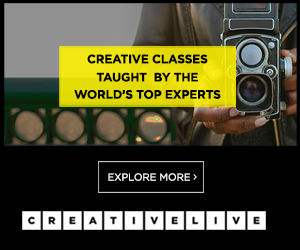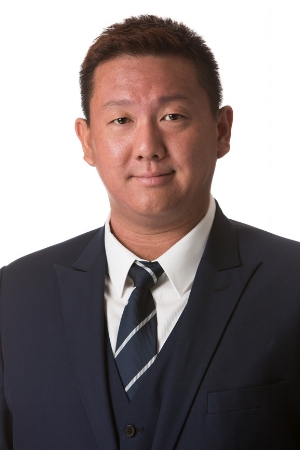You + Career ≠ Self Worth
First published March 19, 2017
It’s devastating to hear of yet another young doctor suicide in Australia.
As the papers report, the 4th known in 6 months; probably many more unreported.
That doesn’t include the statistics for other healthcare professionals in Australia, or of those who work within healthcare; and of course, those from non-healthcare professions, too.
We don’t know the victims personally, and we’re not going to pretend we know their story.
But we know our own stories.
The pressure of our careers and perfectionism in the age of Instagram is higher than ever, and we want to remind everyone:
Your career is not your value as a person.
We know it.
And we can give advice on how things can change in the healthcare profession.
Because, this may not surprise you, these exact same issues crop up in the startup world, too.
The same exacting degree of impossible high standards.
Being the top one percent of the cream of the crop.
Feeling like you have to beat and compete with that top percent of the cream of the crop.
Congratulating yourself for pushing through 100 hour work weeks or more without a break, week on week.
Being made to feel ashamed when you try to enjoy your Sunday off but have hours of lectures to catch up on.
Being told by senior bosses and advisors that “we’ve been there, we’ve done that, we’ve pushed through insane hours at the risk to our health and our relationships, too.”
The thing is, thirty years down the track, the seniors in various professions may have neglected to realise the impact that social media and digital devices have on all industries and their workers.
We’re constantly surrounded by information overload.
Our email inboxes keep filling.
Those Tweets keep flowing in.
Our patients demand the best, and we are doing our best within our limited neural networks.
Peer pressure scorns you when you haven’t published enough papers.
Your brain and body work best when you have enough rest.
We have to accept that we can never know everything.
We’re not perfect.
And despite the external factors set to validate “success,” we have to remember we’re able to set our own internal values.
We’ve been in the undergraduate medical class where people sneered at Mindfulness and Resilience training.
We’ve been there when we were too scared to call in sick despite being sick with gastro, because we’re worried our colleagues will think we’re too “soft” or faking it.
We’ve seen colleagues return to work when they’re still having gastro, risking hospital outbreaks, because they are the only Registrar on call that weekend in a major city hospital, and their bosses don’t get paid for stepping in for them.
You feel pressured to return to work before you’re well, too.
Yet other colleagues make it difficult for the workplace to trust your cohort, because when they call in sick, they’re pictured at festive events the same day they were meant to work.
We’ve been told we’re worthless by Directors of Training, despite studying and working at the cost of seeing loved ones when they needed us.
We’ve cried through weekends off because they were never really “off” when you had to study, study, and study for fellowship.
We were told by Colleges and work paraphernalia to look after yourself and seek help.
When we tried to do more sport or see friends, we had the opportunity cost of less time for study group.
We were told we didn’t want it badly enough, and we knew that was bull.
Yet it’s never enough.
There’s always going to be someone who says you’re too “soft” or worse.
You have to learn to tune them out.
You have to know what’s important to yourself.
What happens if you do achieve that goal you’re seeking? Will it really make you happy? Or will it more likely unlock another list of far-reaching career accomplishments you’ll need to add to your LinkedIn?
You have to accept that the only thing you can be perfect at is being YOU.
Being the one who your aunts and childhood friends call on your birthday.
The one who gets to hold your nephew.
The one who gets to laugh at your partner’s jokes.
The one who bakes the best cake in the family.
Who were you before you started your degree?
What interests did you enjoy along with medicine or your profession?
What did you do to relax?
If the answer’s “Nothing!” to all of that, you can still start something now.
Did you ever talk to anyone outside of work about your problems?
The strongest thing you can do is find someone.
Your problems are NEVER too small to share with someone who cares or is trained to help.
Lifeline, Beyond Blue, a counsellor, psychologist, a GP, the Victorian Doctors’ Health Program– they’re all there to help you.
Most major workplaces including hospitals, manufacturing factories, corporations, and so forth- have an Employee Assistance Program or similar where staff can access free, confidential counselling sessions.
You can go to the other side of town or chat over the phone, and not let it be known to anyone in your workplace or fellowship college.
You may not click with that counsellor or listener immediately, but persist – or try someone else. It’s not personal. The counsellor relationship doesn’t have to be perfect immediately.
Try something new. The brain loves novelty. Attend an acting class. An illustration class. A free yoga session on the beach. Be anonymous. Challenge yourself to step out from what you know. That one-hour break at the new yoga session could be exactly what you need to feel reinspired.
Call a friend you haven’t seen since school. It’s amazing how similar our paths are, despite differences in uni degree (or lack of- and it’s incredible what lives people can build for themselves without a college or uni diploma!). The same stressors. The same feelings of lack of self-worth in any industry.
A key reason why we started this blog was to inspire others about healthcare and entrepreneurship. Because those skills and these stories of real people who have hit rock bottom before career success, can be used by you, too.
It doesn’t matter if you’re medical or not.
At the crux of it, you’re doing whatever you do because you want to do good.
And doing good (and being well enough to do this) involves taking risks.
You’re thinking like an entrepreneur if you take a risk and decide to take time out from training.
You’re thinking like a startup founder by deciding to apply for a paid Biodesign Fellowship overseasinstead of following the PhD route the majority are taking.
You’re a risk-taker if you decide to apply for a Google prize through your PhD.
You’re creative by founding a cancer app combining clinicians’ and patients’ needs instead of waiting a few years to finish training before starting to make an impact.
And you’re a champion if you’re learning to deal with your fears.
Both the medical and startup worlds must learn to be kind to their own.
But while they’re learning how to do so (and it’s really not that hard to be nice), refuse to be a victim.
You are in control of your actions.
Be yourself. Be passionate about being your best self, in medicine or any tribe you’re connected to.
And allow yourself to receive kindness from others.
You’re not alone.
Help can be found in Australia from many sources including Lifeline (13 11 44), BeyondBlue, Black Dog Institute, the Victorian Doctors’ Health Program, and your GP. Please comment below if you have more resources to share including outside Australia.
There is also a donation fund set up in honour of a recent doctor-suicide victim.
Thank you for reading this.





